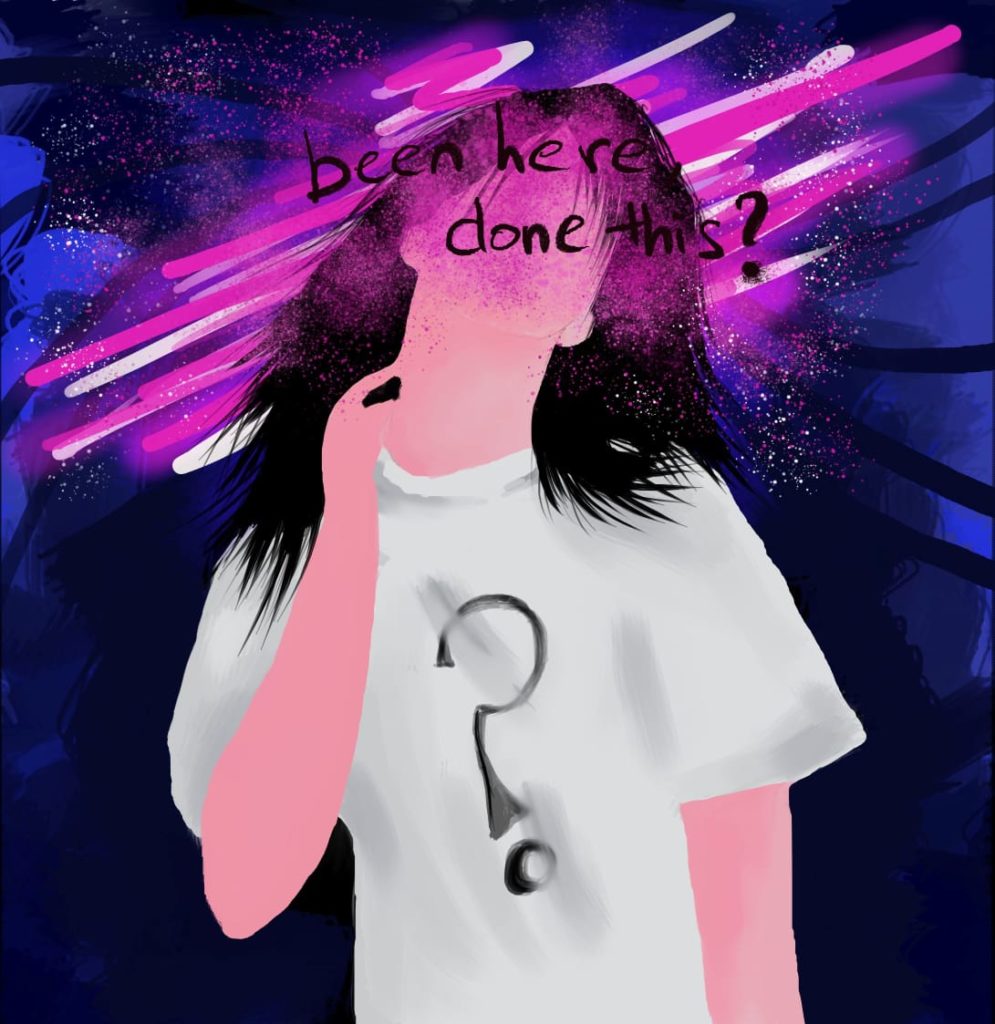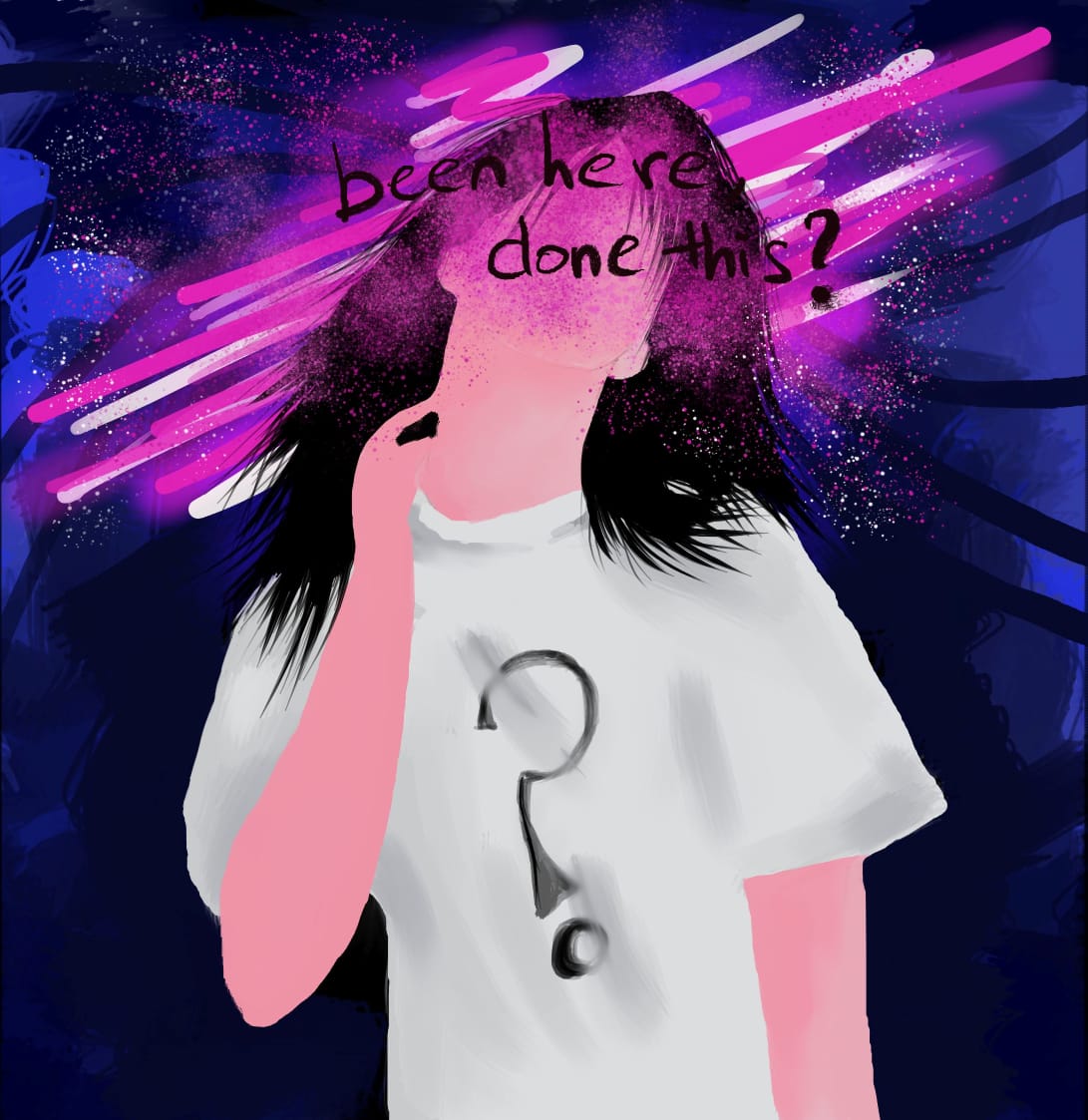
Déjà vu is a French phrase that translates to ‘already seen’. Déjà vu is a phenomenon you might have experienced, a feeling of familiarity with the situation you may be in, despite never having experienced it before. In this article, we explore the science behind déjà vu and alternate theories that may explain its occurrence.
What causes Déjà vu?
You are on top of a building, so high up in the air that you can’t see the ground. The next thing you know, the world seems to shift as you fall to the ground, faster and faster to your inevitable demise. BOOM.
Your eyes jolt open. Your heart is pounding, and you’re breathing twice as fast as normal as you wipe away a drop of sweat from your brow. You realise that this was only a dream.
This sensation of falling when you are asleep is what is known as a hypnogogic jerk, which is caused by a dysfunctional electric discharge in the brain. Various scientific studies have led researchers to believe that this discharge is also the cause of déjà vu.
According to Alan Brown, a psychologist and the author of “The Déjà Vu Experience,” about two-thirds of the world’s population experiences déjà vu at some point in their lifetime. However, people with epilepsy or other neurological illnesses experience a form of pathological déjà vu.
Non-pathological déjà vu comprises of just the feeling of having experienced a situation before, which a majority of the population experiences.
However, since studies have proven that electrical discharges are also linked to déjà vu, it is a belief of some that all episodes of déjà vu can be considered as pathological.
In reality, empirical research of the experience of déjà vu is extremely difficult as it seemingly occurs at random, with no prior warning. All you’re left with is confusion and a dire need to tell someone that you feel that you have experienced this before. Naturally, though, several people have tried explaining this phenomenon.
In 1941, H. Banister and O.L. Zangwill tried inducing déjà vu using hypnosis on experimental subjects. Participants were given post-hypnotic amnesia after making them smell various objects. Upon re-encounter with them after the hypnosis, three out of the ten reported feeling a sense of familiarity with the smells.
Since then, it was evident to researchers that déjà vu is heavily linked to memory systems in the brain. A part of the brain known as the temporal lobes is responsible for the retention of long-term memories. The aforementioned pathological déjà vu is experienced by patients of temporal lobe epilepsy, which causes seizures in the temporal lobe of the brain.
Surely, though, déjà vu can’t just be memories, right? It feels different — maybe not as tangible as real memories. An alternative theory suggests that it occurs because of a discrepancy between the memory systems in the brain. It is caused by a mismatch between the sensory input and the recollection of memories.
All of this implies a correlation between personal experiences, memory systems, and déjà vu.
Despite all the attempts, we have not yet completely understood what causes us to experience déjà vu. However, recent strides in brain imaging technology have resulted in large leaps in our understanding of déjà vu. There is immense hope that one day, we will arrive at the correct explanation.
Alternate Theories
According to Michio Kaku, the existence of parallel realities can explain déjà vu. According to Schrodinger’s wave function, we are a collection of waves vibrating and splitting apart in time. Just like us, other versions of ourselves are waves vibrating in parallel universes. Most of the time, we vibrate incoherently to parallel versions of us, but there are moments when we vibrate coherently, which can cause us to move back and forth between realities, which leads to us experiencing multiple realities at the same time which causes deja vu (crazy, isn’t it?).
“We physicists believe, for example, that there is really a multiverse that exists even inside our living room.”
Michio Kaku
The feeling of déjà vu persists only for a few seconds, implying that if this theory were true, we must be vibrating coherently with our version from another universe for a very short while. That is, we start vibrating incoherently very soon, and come back to our reality. Let’s take a second here and imagine the possibilities. What if we WERE oscillating between two realities? If our brain eventually evolves, would we be able to make conscious jumps across realities? What if our brain becomes adept at switching between realities so well that we don’t feel it anymore? Or worse, our brain can’t comprehend the reality switch, and hence makes up the feeling of déjà vu as a defence mechanism?
Sources:
Déjà Experiences in Temporal Lobe Epilepsy by Illman, Butler, Souchay, and Moulin
theconversation.com
howstuffworks.com
Written by Rushil Dalal and Rithik Talwar for MTTN
Edited by Salekha Reddy
Artwork by Arvin Das for MTTN

Leave a Reply
You must be logged in to post a comment.